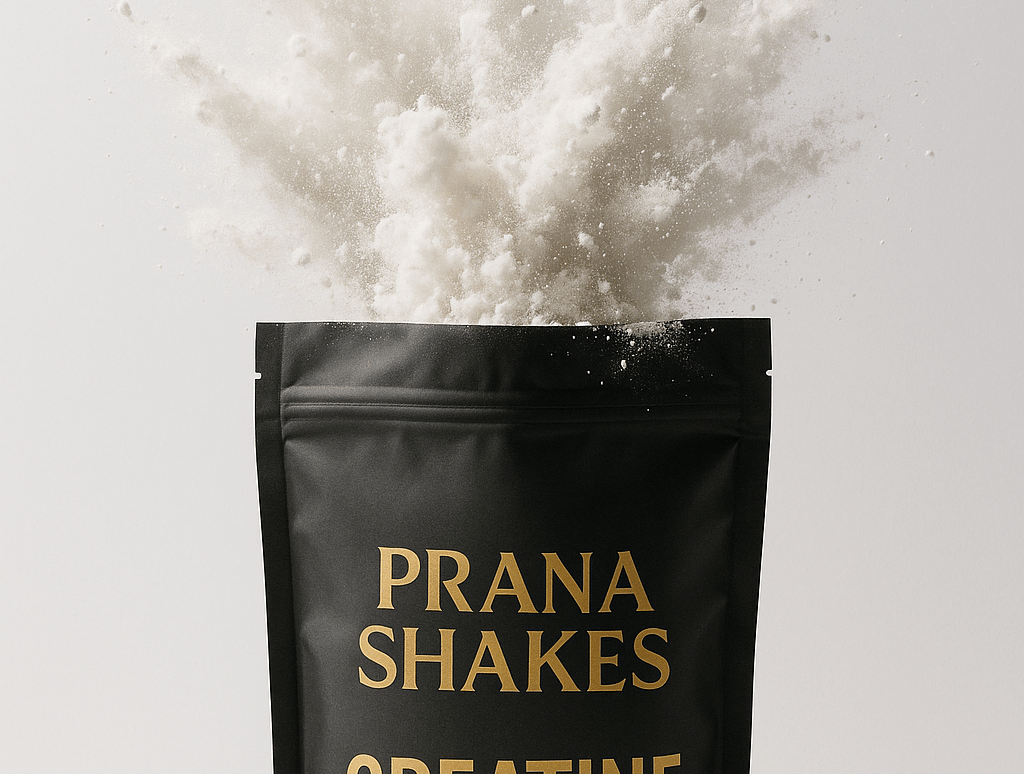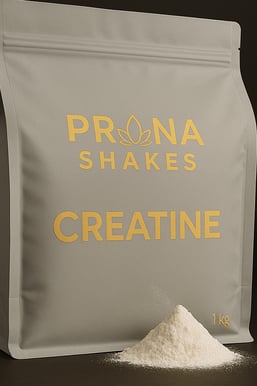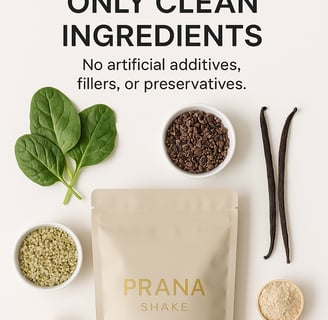CREATINE






Increases Strength and Power
Supports Muscle Growth
Improves Exercise Performance
Enhances Recovery
Supports Brain Health




CREATINE


Creatine is one of the most researched and proven supplements out there for improving strength, power, and muscle mass.
It’s a natural compound found in small amounts in foods like red meat and fish, and it plays a key role in helping your body rapidly produce energy during short bursts of intense exercise.
The most commonly used and effective form of creatine in supplements is creatine monohydrate, which is both affordable and highly efficient.
Creatine supplementation is especially beneficial for strength athletes, like weightlifters, or sprinters, who need quick, explosive energy. If you’re someone looking to build lean muscle mass or improve your workout performance, creatine can be a game-changer. It’s also incredibly helpful for older adults, as research shows it may help preserve both muscle strength and cognitive function as we age. Vegetarians and vegans can also benefit since plant-based diets tend to have lower natural creatine intake compared to omnivorous diets.
Full transparency: Creatine is NOT a steroid. It’s completely natural and safe when used correctly.
The loading phase (taking high doses for several days) is optional, consistent daily use of 3–5g will work just as well over time.
The water retention you might experience is temporary, and it’s not fat gain.
For those who already consume a lot of red meat and fish, the extra supplementation might not provide significant benefits—though it can still enhance performance.
Some individuals may also be put off by the slight water retention that creatine can cause, leading to mild weight gain.
It’s important to remember that this is just water weight, not fat.
If you have pre-existing kidney issues, it’s always best to consult with your doctor first, even though creatine is considered safe for healthy individuals when used properly.
MYTH VS FACT: CREATINE EDITION


Myth: You need to load creatine with high doses for it to work.
Fact: While some people follow a “loading phase” (taking 20g/day for 5–7 days), it's not necessary. A consistent intake of 3–5g per day works just as well over time without the loading phase.
Myth: Creatine is only for bodybuilders.
Fact: Creatine is beneficial for anyone engaging in high-intensity exercise, including athletes in sports like sprinting, football, and gymnastics. It can also support older adults in maintaining muscle mass and strength.
Myth: Creatine is only effective for men.
Fact: Creatine works equally well for women, helping them increase strength, improve performance, and support muscle growth, just like it does for men.
MYTH VS FACT: CREATINE EDITION


Myth: Creatine is a steroid.
Fact: Creatine is a naturally occurring compound in the body, not a steroid. It helps with short bursts of energy during high-intensity exercise and promotes muscle growth through improved workout performance.
Myth: Creatine causes kidney damage.
Fact: Creatine is safe for healthy individuals when taken in recommended doses. Studies have shown no significant negative effects on kidney function in healthy people. However, those with pre-existing kidney conditions should consult a doctor before using creatine.
Myth: Creatine leads to fat gain.
Fact: Creatine may cause water retention in muscles, leading to temporary weight gain, but it doesn’t cause fat gain. The extra water helps muscles function better during intense exercise, which actually supports strength and muscle growth
PranaShake
Customer Support - Link
Community
© 2025. All rights reserved.
"Wellness for You, Impact for All"
Become an Affiliate Charity
Sports Centre
Events
Universities
Explore Prana
Home
About Us
PranaShake Machine
Nutrition
Community
Contact Us
Support